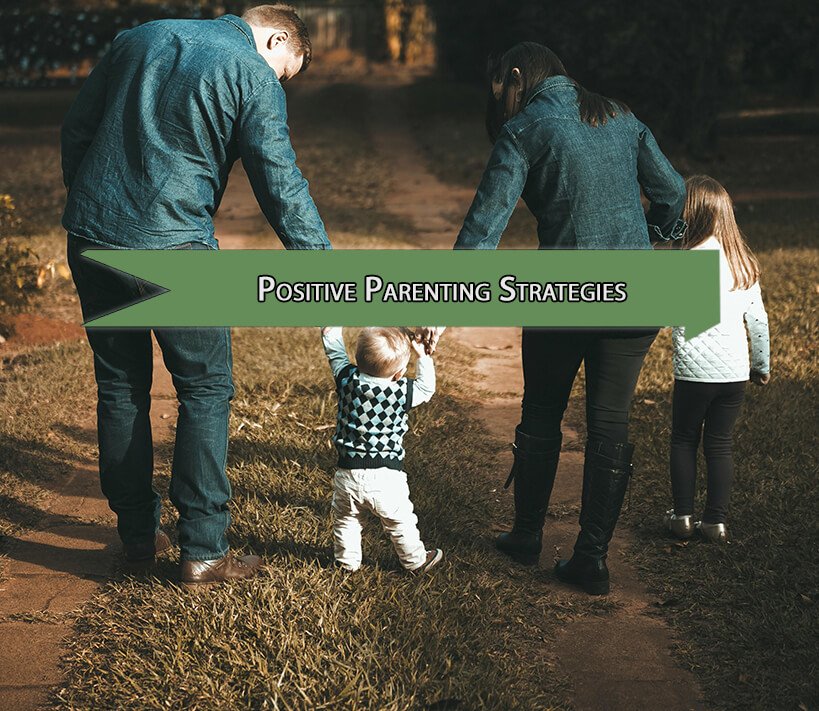Parenting is one of the most rewarding yet challenging journeys in life, every parent dream is to raise a child who is confident, kind, and happy. But often, in the chaos of school runs, tantrums, and never-ending to-do lists, we find ourselves saying “no” more than “yes”, yelling instead of listening, and reacting instead of truly connecting. This is where positive parenting comes in. It does not mean being perfect or giving in to everything your child wants without teaching them right from wrong. It means raising children with love, respect and firm guidance.
By practicing positive parenting, we establish a strong and healthy bond with our children, a connection that fosters emotional safety and trust. This approach, which we call the psychoaura of parenting, is about creating an emotional environment where children thrive not just behaviorally, but psychologically and spiritually too. In this blog, we will discuss what positive parenting is and explore simple parenting strategies that can help transform your home.
Positive Parenting in Urdu
وہ پرورش کا انداز ہے جس میں بچوں کو محبت، عزت، اور نرمی کے ساتھ ساتھ پُرعزم رہنمائی کے ذریعے بڑا کیا جاتا ہے۔ اس طرزِ پرورش میں بچوں کی بات سنی جاتی ہے، اُن کے جذبات کو سمجھا جاتا ہے، اور اُنہیں اچھے اور بُرے کی پہچان سکھائی جاتی ہے—بغیر کسی خوف، سزا یا توہین کے۔
یہ والدین اور بچوں کے درمیان ایک مضبوط، بھروسے پر مبنی رشتہ قائم کرتا ہے، جس میں بچے خود اعتمادی، ذمّے داری، اور ہمدردی کے ساتھ پروان چڑھتے ہیں۔
What is Positive Parenting
Positive parenting is a mindset and approach that focuses on encouragement rather than punishment, building connection instead of control, and fostering communication instead of criticism. It helps children grow into responsible and emotionally mature individuals, without fear or force. This approach nurtures trust, empathy, and self-discipline, empowering children to thrive in a safe, respectful, and supportive environment. It also promotes long-term emotional well-being, enhances parent-child relationships, reduces behavioral issues, and lays the foundation for a confident and compassionate future adult.
Here are some simple but powerful positive parenting strategies that can transform your home:
1. Connect Before You Connect
Before you start giving instructions, correcting behavior, or criticizing every little thing by saying, “You should not have done it this way”, or “That was wrong”, take a moment to pause and connect with your child. A gentle touch, warm eye contact, or simply calling their name with warmth can make a big difference. When children feel emotionally safe and connected, they are much more likely to listen to you, cooperate willingly, and internalize values. This slight shift builds mutual respect, reduces power struggles, and strengths the parent-child relationship in the long run.
2. Focus on What You Want, Not What You Do not
Children respond better to clear and positive instructions rather than constant “do nots”. Instead of saying, “Please stroll”. Positive instructions are more straightforward for children to understand and follow because they tell them exactly what to do, rather than focusing on what to avoid.
When we shift our language from negative commands to clear, constructive guidance, we not only reduce resistance but also help children develop better listening skills, emotional regulation, and a stronger sense of cooperation. This approach encourages respectful communication and builds a more peaceful and supportive environment where children feel seen, heard, and guided with love.
3. Praise Efforts, Not Just Results
Children thrive on encouragement, but the type of praise we give matters. Instead of focusing solely on outcomes, try to praise their efforts, progress, and problem-solving skills. When we acknowledge the hard work behind their achievements, children feel more confident, motivated, and willing to keep trying, even when things get tough. This kind of meaningful praise helps develop a growth mindset, where children value learning over perfection. It teaches them that mistakes are a natural part of the journey and that persistence and resilience are essential to success. Over time, they become more self-driven and emotionally intense individuals.
4. Set Firm but Loving Boundaries
Positive parenting does not mean saying yes to everything. Kids feel secure when they know what the limits are, but those limits must be shared calmly and respectfully. Clear, consistent boundaries teach responsibility, foster respect, reduce power struggles, and help children understand the importance of structure and self-control.
5. Use Mistakes as Learning Moments
Children misbehave, make mistakes, and break rules, it is a natural part of growing up and learning. Instead of reacting with anger or punishment, a moment should be taken to pause, a deep breath should be drawn, and they should be gently guided. They should be helped to understand where things went wrong and what could be done better next time.
This calm and respectful approach not only teaches accountability but also builds emotional intelligence. It shows children that their mistakes do not define them and that growth comes from reflection, not fear. Over time, they learn to self-control, make thoughtful choices, and trust you as a safe space for learning.
6. Be the Calm You Want to See
Children mirror our emotions. If we react with yelling or frustration, they often respond in kind. But when we stay calm, even during challenging moments, we teach them how to manage stress with patience. It is okay to say, “I am feeling overwhelmed right now. I need a moment to calm down before we talk”. This model of healthy emotional regulation.
Conclusion
Positive parenting is not about being perfect, it is about being present, kind, and consistent in your approach. When we prioritize connection over control, encouragement over criticism, and respectful guidance over punishment, we create a nurturing environment where children feel emotionally safe, valued, and understood. This foundation not only improves behaviour but also cultivates lifelong traits such as empathy, resilience, confidence, and emotional intelligence. It strengthens the parent-child bond and helps raise individuals who are self-aware, responsible, and compassionate. Remember, every small, intentional effort you make today shapes a brighter future tomorrow.




